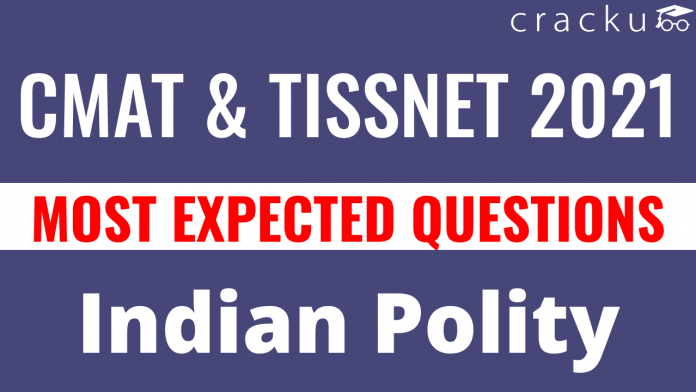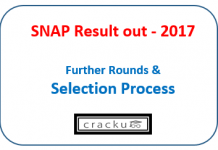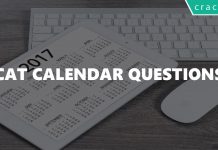Indian Polity Questions For CMAT & TISSNET
Download CMAT and TISSNET Indian Polity Questions and Answers PDF. Most expected Polity GK questions for CMAT & TISSNET 2021 exams.
Download Top-50 Polity Questions For CMAT & TISSNET
Get 5 CMAT Mocks – Just Rs. 299
Download CMAT Previous Papers PDF
Download TISSNET Previous Papers PDF
Question 1: Which Mughal emperor has given Diwani rights to East India company?
a) Akbar
b) Babur
c) Humayun
d) Shah Alam
Question 2: which Indian council act is also called as Morley-Minto reform?
a) Indian council act 1909
b) Indian council act 1892
c) Indian council act 1861
d) Indian council act 1858
Question 3: It was first whose idea of setting up constituent assembly in India?
a) Jawaharlal Nehru
b) Mahatma Gandhi
c) M.N. Roy
d) Sarvepalli Radhakrishnan
Question 4: Who is the calligrapher of the Indian Constitution?
a) Pingali Venjayya
b) Prem Behari Narain Raizada
c) Sarvepalli Radhakrishnan
d) Sarojini Naidu
Question 5: Which constitution amendment act is known as Mini constitution?
a) 22nd
b) 72nd
c) 42nd
d) 44th
Question 6: Removal of supreme court and high court judge is a feature borrowed from which country’s constitution?
a) USA
b) Canada
c) Australia
d) Ireland
Question 7: Ideals of liberty is borrowed from which country?
a) Germany
b) Ireland
c) Australia
d) France
Question 8: Who are the members of JVP committe?
a) Jawaharlal nehru, Vallabhai Patel, Pingali venkayya
b) Jawaharlal nehru, Vallabhai Patel, Pattabi Seetharamayya
c) Jawaharlal nehru, Vallabhai Patel, Potti sreeramulu
d) Mahatma Gandhi, Vallabhai Patel, Sarvepalli Radhakrishnan
Question 9: Which article of Indian constitution defines “state”?
a) Article 18
b) Article 15
c) Article 12
d) Article 29
Question 10: What is meant by Autocracy?
a) Rule by queen
b) Rule by some group of people
c) Rule by pope
d) Absolute rule by one
Download CMAT Previous Papers PDF
Question 11: Under which schedule of constitution Police is under state list?
a) 7th
b) 3rd
c) 5th
d) 2nd
Question 12: Representation of any state in Rajya Sabha is according to
a) number of representative in Lok Sabha from the state
b) fixed number of condidates from each state
c) area of the state
d) population of the state
Question 13: The constitution of India provided that Hindi shall be
a) The language of communication between the Union Government and the State Governments.
b) The National language of India
c) The language of communication between the State Governments
d) The official language of the Union of India.
Question 14: India’s first coalition government in New Delhi was formed under the leadership of:
a) V. P. Singh
b) P. V. Narasimharao
c) Morarji Desai
d) Atal Behari Vajpayee
Question 15: The Indian Supreme Court’s judgement on triple talaq refers to which of its forms?
a) Talaq-e-Ahsan
b) Talaq-e-Hasan
c) Talaq-e-Biddat
d) All of the above
Question 16: What is the largest committe of Indian Parliament?
a) Estimates committe
b) Public Accounts committe
c) Public Undertaking committe
d) None of the above
Question 17: Appointment of all Indian services are made by ?
a) Prime Minister
b) Speaker
c) President
d) Vice-President
Question 18: Which act made central legislature Bicameral?
a) Government of India act 1919
b) Government of India act 1858
c) Government of India act 1861
d) Indian council act, 1909
Question 19: Who administers the oath of President of India?
a) Speaker of Lok sabha
b) Chief Minister
c) chief justice of India
d) Vice-president
Question 20: Panchayat raj system was introduced in India in which Year?
a) 1950
b) 1962
c) 1954
d) 1959
Download TISSNET Previous Papers PDF
Enroll to MAH MBA CET Crash Course
Question 21: The formation of separate Telangana state was the result of Telangana people’s longfight to get the following:
a) Water, Resources, Jobs
b) Education, Employment, Independence
c) Respect, Huge Wealth, Influence
d) Reservations, Jobs, Bank loans
Question 22: Which one of the following statement is correct with regard to parliamentary committces ?
a) The members of the Estimates Committees are elected by Lok Shabha.
b) Public Accounts Committee consists of 30 members.
c) Committee on Empowerment of women is a departmentally related committee.
d) Committee on Home affairs is a Joint Parliamentary Committee.
Question 23: In the Constituent Assembly, the ‘Objectives Resolution’ was passed on :
a) $24^{th}$ January, 1947
b) $25^{th}$ January, 1947
c) $26^{th}$ January, 1947
d) $22^{nd}$ January, 1947
Question 24: Who among the Telangana leaders was the first to suggest Vishalandhra ?
a) Gulam Rasool Khan
b) J.V. Narasinga Rao
c) Devulapalle Ramanuja Rao
d) K.V. Ranga Reddy
Question 25: Rowlatt Act, also known as the Black Bill was passed in the year
a) 1929
b) 1919
c) 1939
d) 1909
Question 26: The Constitution of India mainly stands for a
a) Religious State
b) Secular State
c) Pious State
d) Non Secular State
Question 27: Members of Rajya Sabha are elected for a term of
a) Six years
b) Five years
c) Eight years
d) Ten years
Question 28: The three-tier system of Panchayat Raj was recommended by
a) Balwant Rai Mehta Committee
b) Jai Prakash Narain Committee
c) Kaka Kalelkar Committee
d) Simon Commission
Question 29: Who is the Head of the State in India?
a) The Governor
b) The Prime Minister
c) The President
d) The Chief Minister
Question 30: According to the school health committee of India the minimum land area for elementary school education is
a) 40 Acres
b) 20 Acres
c) 10 Acres
d) 30 Acres
Question 31: What is the legal age to perform marriage for girls in India?
a) 19 years
b) 20 years
c) 21 years
d) 18 years
Question 32: National foundation for communal harmony was set up in which year?
a) 1989
b) 1992
c) 1978
d) 1972
Question 33: Who appoints Judges of Supreme Court and High Court in India?
a) Chief Justice of India
b) President
c) Prime Minister
d) Law Minister
Question 34: Who conducts the elections of Lok Sabha in India?
a) Election Commission
b) Union Public Service Commission
c) Delimitation Commission
d) Parliament
Question 35: Which of the following Prime Minister has served a term of 13 days?
a) Atal Bihari Vajpayee
b) Morarji Desai
c) Charan Singh
d) Jawaharlal Nehru
Question 36: Upper House of the Indian Parliament is also known as _____.
a) Lok Sabha
b) Rajya Sabha
c) Vidhan Parishad
d) Vidhan Sabha
Question 37: Elections to Panchayats in a State are conducted by ______.
a) Election Commission of India
b) Joint Public Service Commission
c) State Election Commission
d) Gram Sabha
Question 38: Which type of Citizenship is provided by the Constitution of India?
a) Single citizenship
b) Regional citizenship
c) Dual citizenship
d) Temporary citizenship
Question 39: Inter-State Council was set up by the recommendation of which committee?
a) Sarkaria committee
b) Y V Reddy Committee
c) TSR Subramanyam committee
d) Chandrababu Naidu committee
Question 40: Who appoints the Chief Justice of India?
a) Vice President
b) Lok Sabha Speaker
c) Prime Minister
d) President
Enroll to MAH MBA CET Crash Course
Question 41: When was the Indian National Flag adopted?
a) 12 July, 1947
b) 12 August, 1947
c) 22 August, 1947
d) 22 July, 1947
Question 42: Which article in Indian Constitution states about Fundamental Duties?
a) Article 31C
b) Article 21A
c) Article 15
d) Article 51A
Question 43: When was the national anthem adopted in its Hindi version?
a) 24 January 1950
b) 26 January 1950
c) 2 October 1948
d) 15 August 1947
Question 44: In which year the National Food Security Act was passed in India?
a) 2011
b) 2013
c) 2012
d) 2014
Question 45: What should be the minimum age to get the Rajya Sabha membership?
a) 18 years
b) 25 years
c) 30 years
d) 35 years
Question 46: Which of the following Articles is for “Protection of interests of Minorities”?
a) Article 27
b) Article 29
c) Article 30
d) Article 26
Question 47: The book titled ‘Social Harmony’ is written by:
a) Lal Krishna Advani
b) Narendra Modi
c) Shyama Prasad Mukherjee
d) Atal Bihari Vajpayee
Question 48: Who was the prime minister of India during ”the Emergency” between the year 1975 to 1977?
a) Indira Gandhi
b) Rajiv Gandhi
c) Moraj Desai
d) Charan Singh
Question 49: Who was the first woman judge of the Delhi High Court?
a) Leila Seth
b) Sujata Manohar
c) Ruma Pal
d) Anna Chandi
Question 50: Mahatma Gandhi formed the Natal Indian Congress in the year ______.
a) 1874
b) 1894
c) 1854
d) 1863
Download TISSNET Previous Papers PDF
Download PGDBA Previous Papers PDF
Answers & Solutions:
1) Answer (D)
2) Answer (A)
3) Answer (C)
4) Answer (B)
5) Answer (C)
6) Answer (A)
7) Answer (D)
8) Answer (B)
9) Answer (C)
10) Answer (D)
11) Answer (A)
12) Answer (D)
13) Answer (D)
14) Answer (C)
15) Answer (C)
16) Answer (A)
17) Answer (C)
18) Answer (A)
19) Answer (C)
20) Answer (D)
21) Answer (A)
22) Answer (A)
23) Answer (D)
24) Answer (C)
25) Answer (B)
Free MBA Preparation YouTube Videos
Join 7K MBA Aspirants Telegram Group
26) Answer (B)
27) Answer (A)
28) Answer (A)
29) Answer (C)
30) Answer (C)
31) Answer (D)
32) Answer (B)
33) Answer (B)
34) Answer (A)
35) Answer (A)
36) Answer (B)
37) Answer (C)
38) Answer (A)
39) Answer (A)
40) Answer (D)
41) Answer (D)
42) Answer (D)
43) Answer (A)
44) Answer (B)
45) Answer (C)
46) Answer (B)
47) Answer (B)
48) Answer (A)
49) Answer (A)
50) Answer (B)




![CAT Averages Questions PDF [Important Questions] CAT AVERAGES Questions PDF](https://cracku.in/blog/wp-content/uploads/2022/07/CAT-AVERAGES-Questions-PDF-218x150.png)
